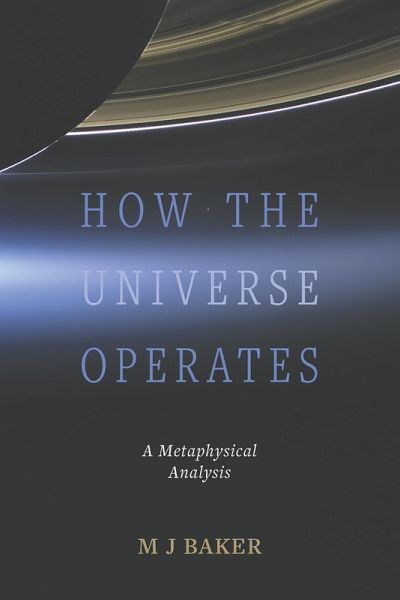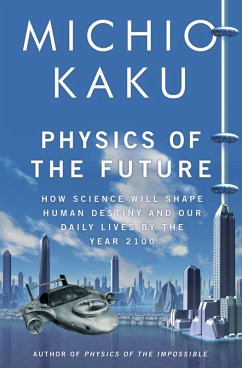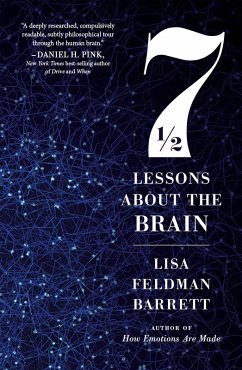
How the Universe Operates (eBook, ePUB)
A Metaphysical Analysis
Versandkostenfrei!
Sofort per Download lieferbar
3,99 €
inkl. MwSt.
Weitere Ausgaben:

PAYBACK Punkte
2 °P sammeln!
Why do the heavenly bodies behave in a contrary fashion to what we are familiar with on earth?Before a wheel can turn, we must ensure rim is joined to axle; before a couple can dance in circle, their hands must be joined. In contrast, the planets circle the sun and the moons circle the planets without any securing mechanism, and so precisely that their movements can be predicted to a millisecond. Again, why is it that, released from the effects of gravity, emollient matter like water or molten lead forms spontaneously into tiny globes, copying the form found in stars, planets and the sun? Are ...
Why do the heavenly bodies behave in a contrary fashion to what we are familiar with on earth?Before a wheel can turn, we must ensure rim is joined to axle; before a couple can dance in circle, their hands must be joined. In contrast, the planets circle the sun and the moons circle the planets without any securing mechanism, and so precisely that their movements can be predicted to a millisecond. Again, why is it that, released from the effects of gravity, emollient matter like water or molten lead forms spontaneously into tiny globes, copying the form found in stars, planets and the sun? Are the tides satisfactorily explained by the thesis of gravitational 'pull' of moon and sun? If so, why does modern science have such difficulty reconciling the relative influences of these two bodies? What sort of reality is light, and why is the speed of light fixed and not infinite, at least in space?Answers to these and other questions may be found through recourse to the philosophy of Aristotle. The thinkers of the Enlightenment chose to discard Aristotle's limited natural science. That was understandable. But they chose to discard his philosophy as well. This was unwise, as fresh study of Aristotle's thinking will show.
Dieser Download kann aus rechtlichen Gründen nur mit Rechnungsadresse in A, B, BG, CY, CZ, D, DK, EW, E, FIN, F, GR, HR, H, IRL, I, LT, L, LR, M, NL, PL, P, R, S, SLO, SK ausgeliefert werden.













